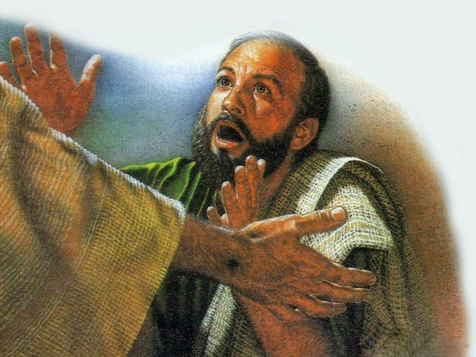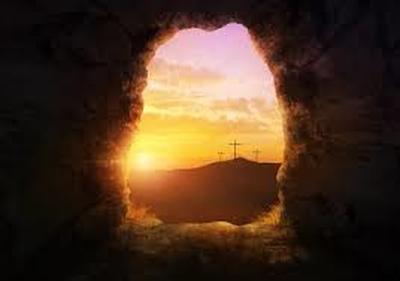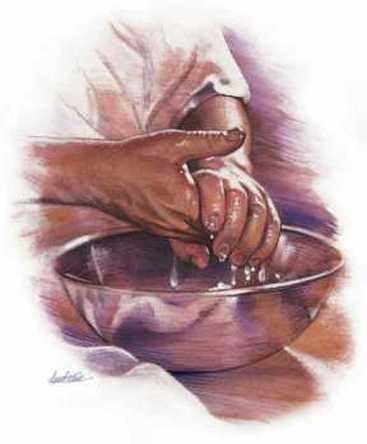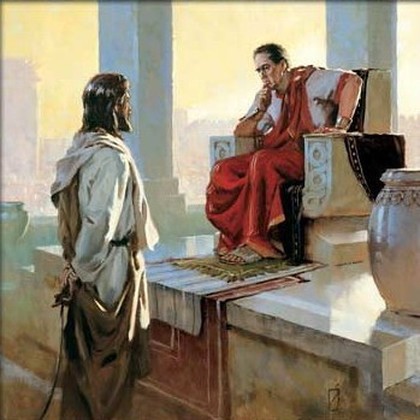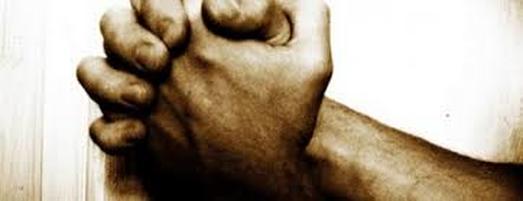|
Well, we’ve finally come to the end of the gospel of John. After fourteen months and thirty-two posts, this John 7-21 Study is just about completed. However, before we leave, we should touch on one final, important topic—the purpose of this book. Unlike other New Testament writers, the Apostle John gives us the purpose of his writing at the end of the book rather than the beginning. So at the end of John 20, we read:
Comments
Have you ever played Apples to Apples? For those of you who haven’t been so privileged, it is a game in which each player has five red cards with nouns written on them. On each turn, one player is the “judge” and draws a green card, which contains a single adjective, and reads it out loud. Then all the other players must choose which of their five cards best meets the adjective read and place it in the pile. Once all players have made their decisions, the “judge” mixes all the submissions up, reads them out loud, and decides which of the red cards submitted matches the green adjective card best. Whoever played the red card that the “judge” decides is the best match wins the green card, and the point of the game is to get five green cards. While this game may sound boring to one who’s never played before, the humor of it is that often times the red noun cards submitted do not match in any stretch of the imagination the green adjective card; thus the game produces lots of laughter.
Now the point of this tedious explanation of the game Apples to Apples is not only to inform you on how the game is played, but also to point out an important life lesson we can glean from it. What happens to the red cards? Well each player is given five of them, those five are then compared against each other and the “best” one is submitted to the next level, where it is again pitted against other red cards for the ultimate prize—to be chosen by the “judge” and thus win a green card. So what does this game entirely consist of? Is it luck? Skill? You got it…though it is the title of the post! Comparison is what Apples to Apples is completely based upon. Each card and each player is pitted against one another and must seek the favor of the “judge”. And while Apples to Apples is not a bad and evil game, it does normalize a dangerous mindset—comparison. Doubting Who?11/10/2016 As we go through John’s account of events after the resurrection, one of the characters that stands out is the disciple Thomas. Remember…he’s the one who refused to believe the resurrection unless he was able to put his hands in Jesus’ nail holes and side. Because of this, Thomas has been dubbed “Doubting Thomas” and given a negative connotation. However, was Thomas’ lack of faith really unjustified? Does he really deserve the bad rap he’s been given?
"I've Just Seen Jesus!"11/3/2016 Their beloved Teacher was dead, and the hope of a restored Israel along with Him. His body was quickly placed in a tomb without proper ceremony and preparation. The government officials may or may not be after those that remained. And one of their number had already denied their Lord for fear of persecution. This was the position of the disciples on the morning of Resurrection Sunday. Things were looking rather bleak and hopeless with no light on the horizon. In such circumstances, it would have been easy to sulk, succumb to depression, and desert, and some of the disciples may have felt like it. However, the first verse of John 20 shows us that at least one woman was not ready to give up yet.
A Finished Work10/27/2016 Before the world was established, God—the Father, Son, and Holy Spirit—dwelt outside of time in pure righteousness, holiness, and absolute justice. And the Almighty, infinite One had a plan: to make man after His own image and to create a perfect world in which man could live and walk in fellowship with Him. So God got started on this massive project, and within five days had breathed stars into existence, shaped the earth, formed the dry land, placed the sun and moon into orbit, and brought forth life in the many forms of plants and trees, birds and fish, and creatures to dwell on the earth. When all was ready and perfect, then and only then, God created His greatest masterpiece. He took dust from the earth, forming it into the image and likeness of Himself, and breathed into it His very own breath of life. Thus man became a living being, created by the very hands of God and brought into existence by the same breath that spoke the world into being and placed the galaxies in orbit. Next, God deemed that it was not good for man—His prized creation—to live alone. So while man was under God-induced sleep, the Creator took from man a rib and hand-fashioned another human being later named woman. Thus, in a perfect world under God’s direct management, began the history mankind.
But all was not to remain so idyllic… The Man Who Acted Against His Conscience10/20/2016 Can you guess who this man was? Need a hint? Think pompous, Roman, and chicken…any closer? The person we’re going to look at next is the Roman governor who signed Jesus’ death warrant: Pontius Pilate. Now Pilate is often viewed as one of the bad guys in Bible history, and while he did send our Lord to the cross, we have a lot more in common with him than we realize.
What is Truth?10/14/2016 Well, what did you think about our last two character studies on Malchus and Pontius Pilate? Did aspects of their life convict, encourage, and exhort you? Which one did you relate most with?
We have two more people to look at before finishing this series. But before we get into the next character, let’s take a moment to reflect and focus on our Savior as He carries the cross—which should be ours—up the hill Golgotha. The gospel of John doesn’t give us nearly as much detail surrounding the actual crucifixion as the other gospel writers do. However, John alone gives us a glimpse into Jesus’ private conversation with Pontius Pilate, and the bold statement Jesus made during His defense. Whatever Happened to Malchus?10/6/2016  As we leave the Upper Room Discourse and enter into the events leading up to and after our Savior’s crucifixion, and the crucifixion itself, we’re going to look into the lives of the people Jesus brushed shoulders with during His harrowing, yet victorious, journey. So as we look at John 18, the first obscure person we meet is a man named Malchus. This man is mentioned as a fleeting character in one verse of all four gospels, and the introduction is not all that pleasant. The Father's Gift9/30/2016 Gifts are a sign of love. We give gifts to those we care about and love. For some, gifts are a love language and by the giving and receiving of them express and receive love. The bestowing of gifts is the physical demonstration of the delight, satisfaction, and acceptance of one for another. So gifts are something to be treasured and appreciated as visible outpourings of love. In light of this, did you know that the Father has bestowed a gift to His Son, Jesus Christ? We are God’s gift to Christ.
Prayer for Unity9/27/2016 John 17 is the pinnacle of the Great Discourse. Known as the “High Priestly Prayer”, this chapter reveals the heart of our Savior and the deep relationship between the Father and the Son. In it, Jesus prays for Himself that the Father would glorify the Son so that the Son may glorify the Father. He prays for His disciples that the Father would keep them in His name and protect them from the evil one. And lastly, He prays for us—the future believers—that we may be one just as the Father and the Son are one.
|


